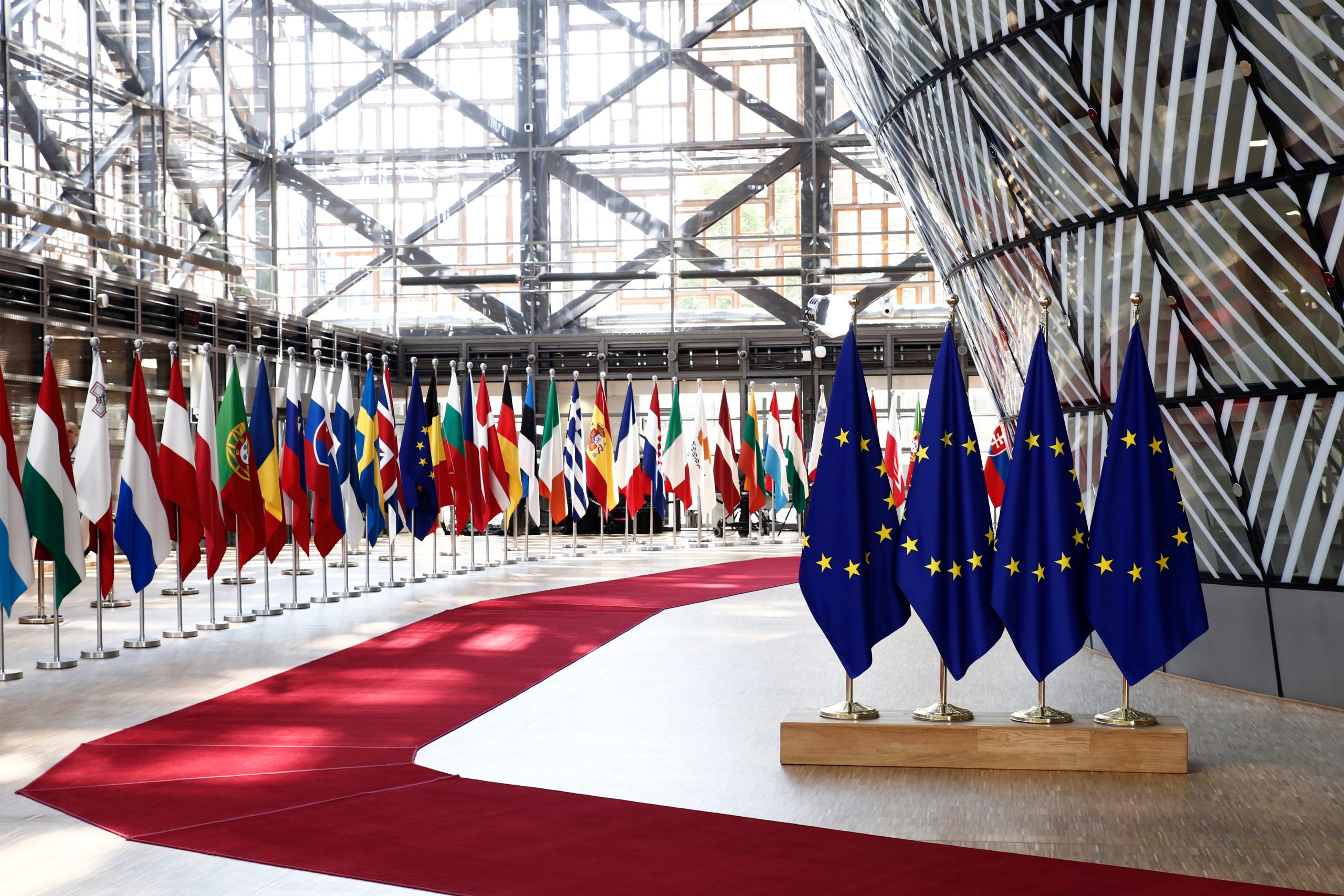Many political parties combine pro-EU policies with critical stances toward immigration and multiculturalism. But are these two approaches contradictory? Drawing on a new study covering France and Germany, Natalia Bogado, Evelyn Bytzek and Melanie C. Steffens highlight that discourses emphasising the threat of cultural diversity can increase Euroscepticism among voters, while discourses promoting multiculturalism are associated with an increase in support for the EU.
Since the 1990s, the Leitkultur debate – ironically spearheaded by later Wilkommenskultur champion, German Chancellor Angela Merkel – has been at the heart of discourses about immigration and asylum in Germany. In a nutshell, the debate is a body of discourses (more or less extreme) grounded on the notion that without a German guiding culture that everyone equally adopts (i.e. a culture into which everyone has been equally assimilated), German society would fall apart.
In other words, social cohesion and peace can only exist in conditions of complete cultural assimilation. Multiculturalism is thus disparaged as an unsustainable ideology that leads to a lack of social unity, violence, criminality, and even terrorism by those who have allegedly failed to adopt the cardinal tenets of the German culture. Accordingly, Merkel famously declared multiculturalism dead in 2010, and the notion that cultural diversity poses a serious threat to peaceful coexistence in Germany was a constant in her political rhetoric throughout her 16 years in power.
Beyond Germany and the Leitkultur, assimilation has dominated public debates about immigration and asylum in many European countries. In France, assimilationist discourses have been the leitmotif of the far-right populist Rassemblement National and the lifeline that secured electoral success for many centre-right candidates – famously, Nicolas Sarkozy, but others as well. Similarly, Brexit followed a campaign where immigration and the threat it allegedly poses to the British cultural identity were highly salient. Armed with a wide array of nationalist and assimilationist slogans, the UK Independence Party and the anti-EU factions of the Conservative Party were able to turn fears over national-identity loss and immigration into anti-EU votes.
Evidence from France and Germany
Brexit offered anecdotal evidence of the negative impact of assimilationist discourses that present immigration, asylum, and cultural diversity as a threat to the nation on support for the EU. In a new study covering Germany and France, we provide scientific evidence to support these assumptions.
Specifically, we found that reading electoral pledges (taken from the 2019 European Parliament election) such as “We must regulate immigration to preserve Europe’s cultural integrity” or “We must protect our European way of life and our Christian values under threat by unconditional migration,” decreased support for EU integration, identification with the EU and – particularly concerning in light of Brexit – increased intentions to vote to leave the EU.
Thus, our study evidenced that something as (apparently) innocent as expressing concern about cultural diversity threatening the integrity of national cultures and customs can fuel Euroscepticism and intentions to leave the Union. Conversely, reassuring voters of the benefits of multiculturalism and cultural diversity increased support for the EU.
Reading electoral pledges that emphasised the importance of promoting multiculturalism and respecting cultural diversity improved EU attitudes and reduced intentions to vote to leave the EU. Electoral pledges such as “We celebrate cultural diversity and want to make Europe a safe place for all” and “We are determined to defend the right of asylum and of migrants to live in Europe without having to abandon their cultural identities” had a positive impact on support for the EU, identification with the EU, and intentions to remain in the Union.
The way forward
In a context where Euroscepticism continues to grow, our research helps us to understand how politicians’ assimilationist messages can promote Euroscepticism. These findings have important implications for political and media discourse. Assimilation discourses are not exclusive to the populist far-right: many pro-EU centre-right parties have also emphasised the threat of cultural diversity in their immigration discourses.
German Chancellor Angela Merkel – who advanced a strong pro-refugee agenda, welcoming hundreds of thousands of Syrian refugees and urging other EU countries to do the same – framed immigration and asylum almost exclusively in assimilation terms. In light of our findings, it is hardly surprising that during Merkel’s tenure, Germany saw the electoral rise of the Eurosceptic Alternative for Germany and the rise of radicalised groups like Pegida and others. Beyond Germany, our study highlights why, despite many politicians’ efforts to promote a pro-EU agenda, the persistence of assimilation discourses means that Euroscepticism will continue to grow among Europeans.
Furthermore, the echoes of Brexit still threaten the continuity of the Union, as exposure to information emphasising the United Kingdom’s sovereignty gains following its exit from the Union increases Euroscepticism and willingness to leave the EU. As such, the importance of adopting multicultural discourses when framing immigration and asylum for the future of the EU cannot be understated.
Additionally, our study offers further hope: in addition to promoting the benefits of multiculturalism, fostering an emotional connection to the EU can also protect the Union from the impact of assimilationist discourses. Unfortunately, data from the 2018 European Social Survey is not reassuring, as EU attachment remains moderate to low among Europeans. However, research has offered some avenues to promote EU attachment.
Recently, studies have found that policies like EU Cohesion Policy and the adoption of the euro increased emotional attachment to the EU. Future research should continue to explore ways to achieve this longstanding goal of increasing Europeans’ attachment to the Union. At the moment, the Russian invasion of Ukraine represents a watershed moment for the EU to display its political, financial, and cultural leadership in the region and thus strengthen European citizens’ emotional attachment to the Union.

